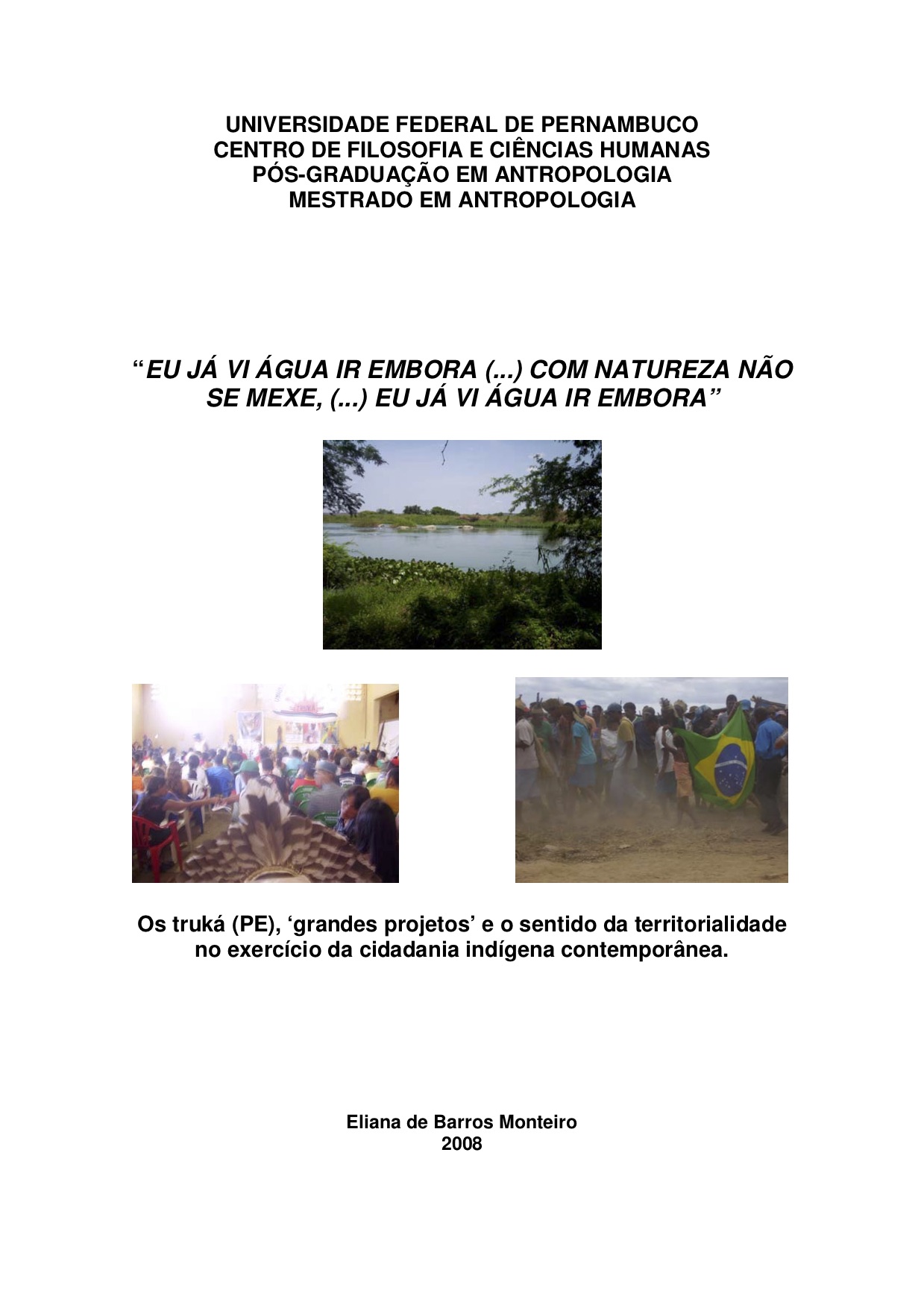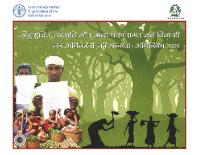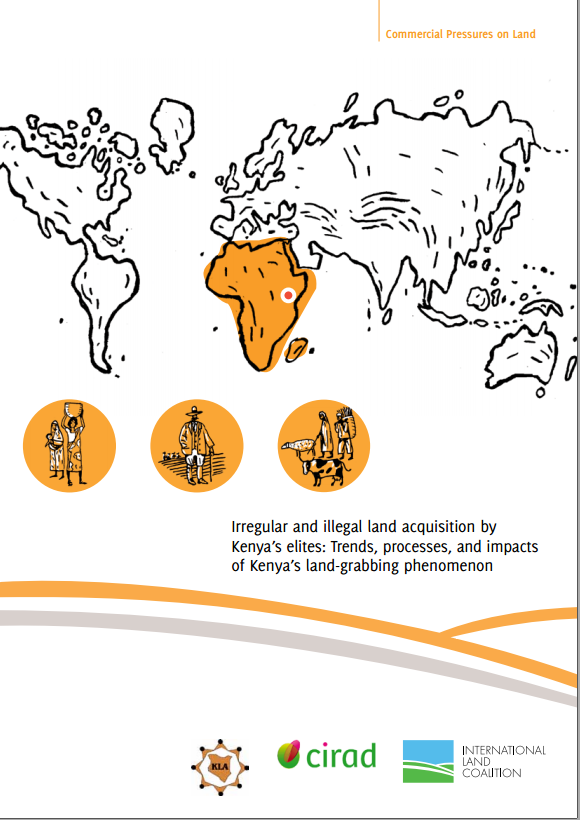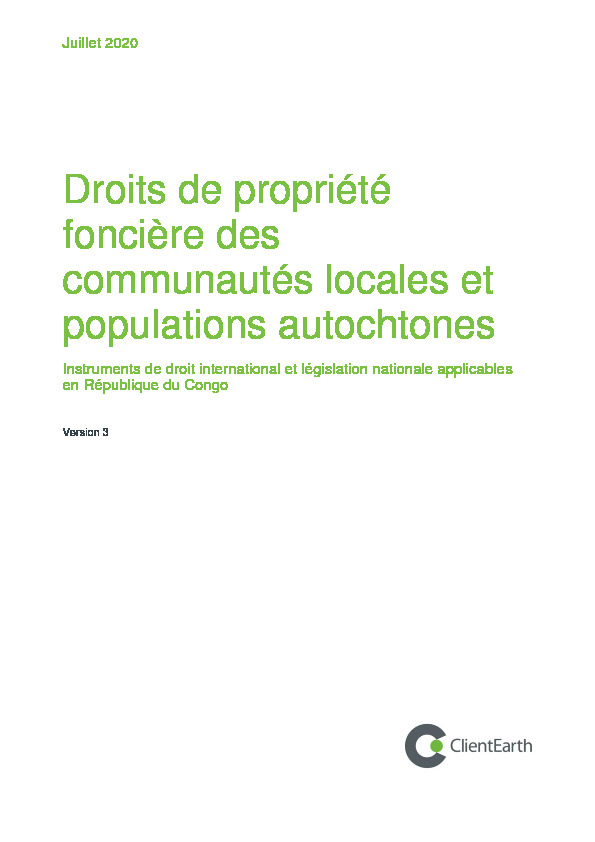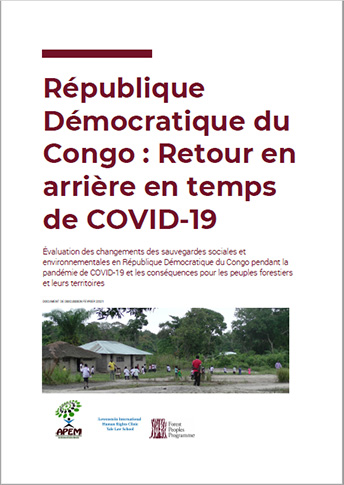The political economy of corruption and REDD+: Lessons from the Philippines’ pilot sites
Corruption is a continuing feature of the Philippines’ natural resource sectors. Given keen interest in the country’s REDD+ potential, it is useful to consider corruption risks related to REDD+ from a political economy perspective. This U4 Issue draws on fieldwork from two REDD+ pilot sites to assess current governance and anti-corruption safeguards related to benefit-sharing, land tenure rights for indigenous peoples, and private sector involvement. Many anti-corruption actions are in place in the pilot sites, but they are weakly embedded in social relations at the local level.
A Guide Book on: The Scheduled Tribes and Other Traditional Forest Dwellers (Recognition of Forest Rights) Act 2006
The booklet is part of a series of materials produced in India to raise awareness on the Voluntary Guidelines on the Responsible Governance of Tenure of Land, Fisheries and Forests in the Context of National Food Security (VGGT) among indigenous peoples and local authorities. In particular, the booklet aims a explaining, through simple cartoons, what communities can do to register their communal lands undert the Forests Rights Act, indicating steps to take and institutions to contact.
Grassroots Innovation Using Drones for Indigenous Mapping and Monitoring
Indigenous territories are facing increasing pressures from numerous legal and illegal activities that are pushing commodity frontiers within their limits, frequently causing severe environmental degradation and threatening indigenous territorial rights and livelihoods. In Central and South America, after nearly three decades of participatory mapping projects, interest is mounting among indigenous peoples in the use of new technologies for community mapping and monitoring as a means of defense against such threats.
Indigenous Protected and Conserved Areas (IPCAs), Aichi Target 11 and Canada’s Pathway to Target 1: Focusing Conservation on Reconciliation
This article provides analysis of the issues relating to movement towards new models for Indigenous-led conservation in light of Canada’s initiatives for greater protected areas representation through Target 1. We provide a background on Canada’s Pathway to Target 1, which is based on Target 11 from the Aichi Biodiversity Targets set forth by the Convention on Biological Diversity (CBD).
Irregular and illegal Land Acquisition by Kenya’s Elites: Trends, Processes, and Impacts of Kenya’s Land-Grabbing Phenomenon
The International Land Coalition (ILC) has commissioned this present report to analyze the illegal/irregular acquisition of land by Kenya’s elites to ascertain the types of land affected, the processes used to acquire land, and the profiles of the perpetrators, as well as to identify the victims and the impacts of land grabbing. The report is drawn largely from the Kenya Land Alliance (KLA)’s series “Unjust Enrichment: The Making of Land Grabbing Millionaires”,
Droits de propriété foncière des communautés locales et populations autochtones en République du Congo
Ce rapport présente et analyse les dispositions internationales et nationales encadrant les droits de propriété foncière des communautés locales et populations autochtones en République du Congo.
Il s'agit d'un document à but éducatif visant à améliorer l'accès et la compréhension des lois congolaises.
Urgence et opportunité
L’Initiative des droits et ressources (RRI pour son sigle en anglais), publie trois nouvelles analyses techniques qui serviront de feuille de route pour intensifier les réformes des régimes fonciers à l’échelle mondiale. Le lancement de ces analyses est destiné à influencer les bailleurs de fonds, les décideurs politiques, les négociateurs et les investisseurs avant la Semaine du climat des Nations unies, et à alimenter les négociations du Cadre mondial pour la biodiversité de l’après-2020, de la Convention sur la diversité biologique 15 et de la CCNUCC COP 26.
République Démocratique du Congo : Retour en arrière en temps de COVID-19
Le présent rapport met en exergue les reculs constatés dans l’application des lois et règlementations en matière de sauvegardes et de protection des droits des communautés locales et des peuples autochtones (CLPA) en République Démocratique du Congo (RDC).
Clamor for justice : sexual violence, armed conflict and violent land dispossession
In this book research focuses on a comparative analysis of the collective strategies employed by indigenous and peasant women to gain access to justice for the sexual violence and other human rights violations they suffered in the context of armed conflict and transition in Colombia and Guatemala.
Scramble for Land Rights: Reducing Inequity between Communities and Companies
Community land, crucial to rural livelihood around the world, is increasingly targeted by commercial interests. Its loss can lead to environmental degradation, increased rural poverty and land disputes that last for years. Without formal legal recognition of their land rights, communities struggle to protect their land from being allocated to outside investors.

